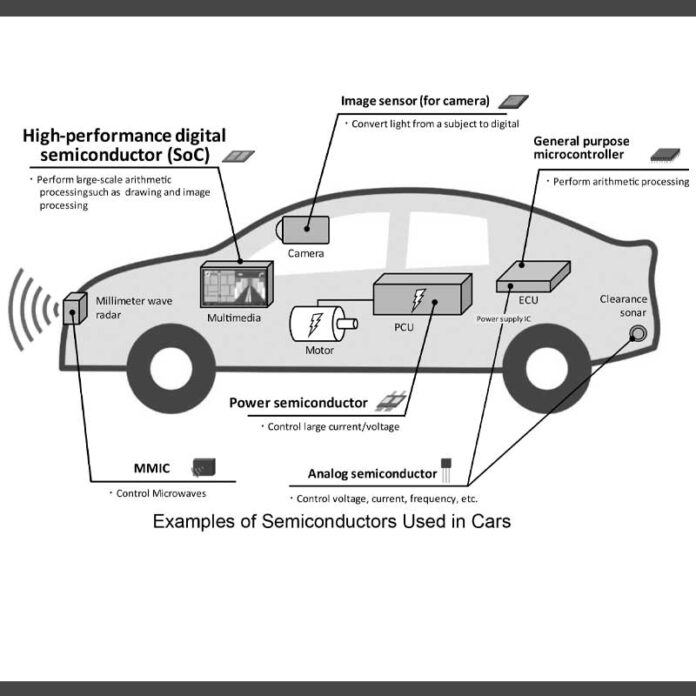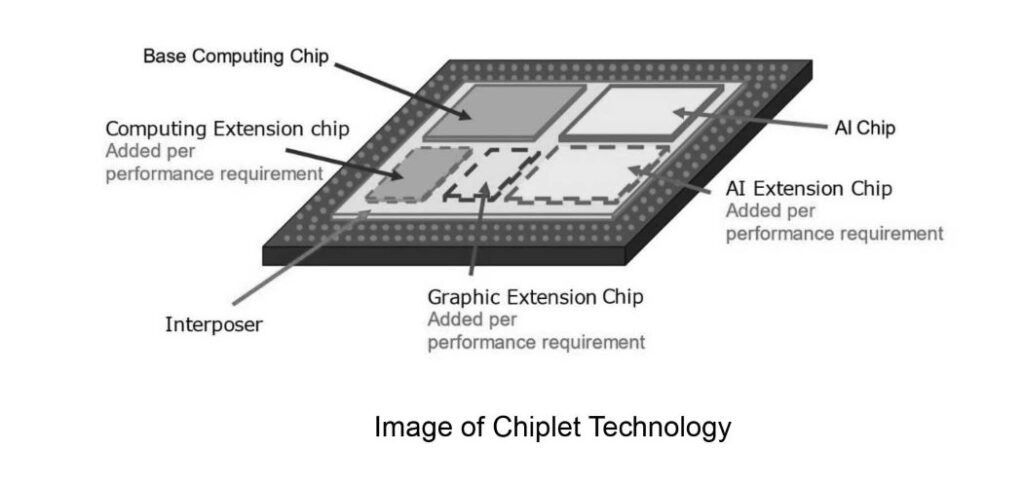
Twelve leading companies from Japan including automotive, electrical component, and semiconductor companies established the “Advanced SoC Research for Automotive” (ASRA) on December 1st to conduct research and develop high-performance digital semiconductors (System on Chip, SoC) for use in automobiles. ASRA will research and develop SoCs for automobiles using chiplet technology to install SoC in mass-production vehicles from 2030 onward.
The 12 companies include five automakers (Honda, Mazda, Nissan, Subaru, Toyota), two electrical component manufacturers (Denso, Panasonic Automotive Systems) and five semiconductor companies (Cadence Design Systems, Mirise Technologies, Renesas Electronics, Socionext Inc and Synopsys). Keiji Yamamoto, Senior Fellow, Toyota Motor Corporation, has been appointed chairman of ASRA and Nobuaki Kawahara, Senior Advisor, Denso Corporation, is the executive director.
ASRA will pursue the high level of safety and reliability required for automobiles by having automakers play a central role. Also, by bringing together the technological and experiential knowledge of electrical components and semiconductor companies, ASRA will aim to apply cutting-edge technologies practically. Specifically, ASRA plans to research and develop SoCs for automobiles using chiplet technology and combining different semiconductor types.
The advantages of Chiplet Technology include higher performance and multifunctionality, higher yield chips, and timely commercialisation of SoCs with functions and performance optimized for end-user (automotive companies) requirement.

ASRA will pursue the high level of safety and reliability required for automobiles by having automakers play a central role. Also, by bringing together the technological and experiential knowledge of electrical components and semiconductor companies, ASRA will aim to apply cutting-edge technologies practically. Specifically, ASRA plans to research and develop SoCs for automobiles using chiplet technology and combining different semiconductor types.
ASRA aims to establish in-vehicle chiplet technology by 2028 and to install SoCs in mass-produced vehicles from 2030 onward. By combining Japan’s technological capabilities and experience in automotive, electrical components, and semiconductors, ASRA will work with industry, government, and academia to promote domestic and international collaboration as a world-leading technology research group.







